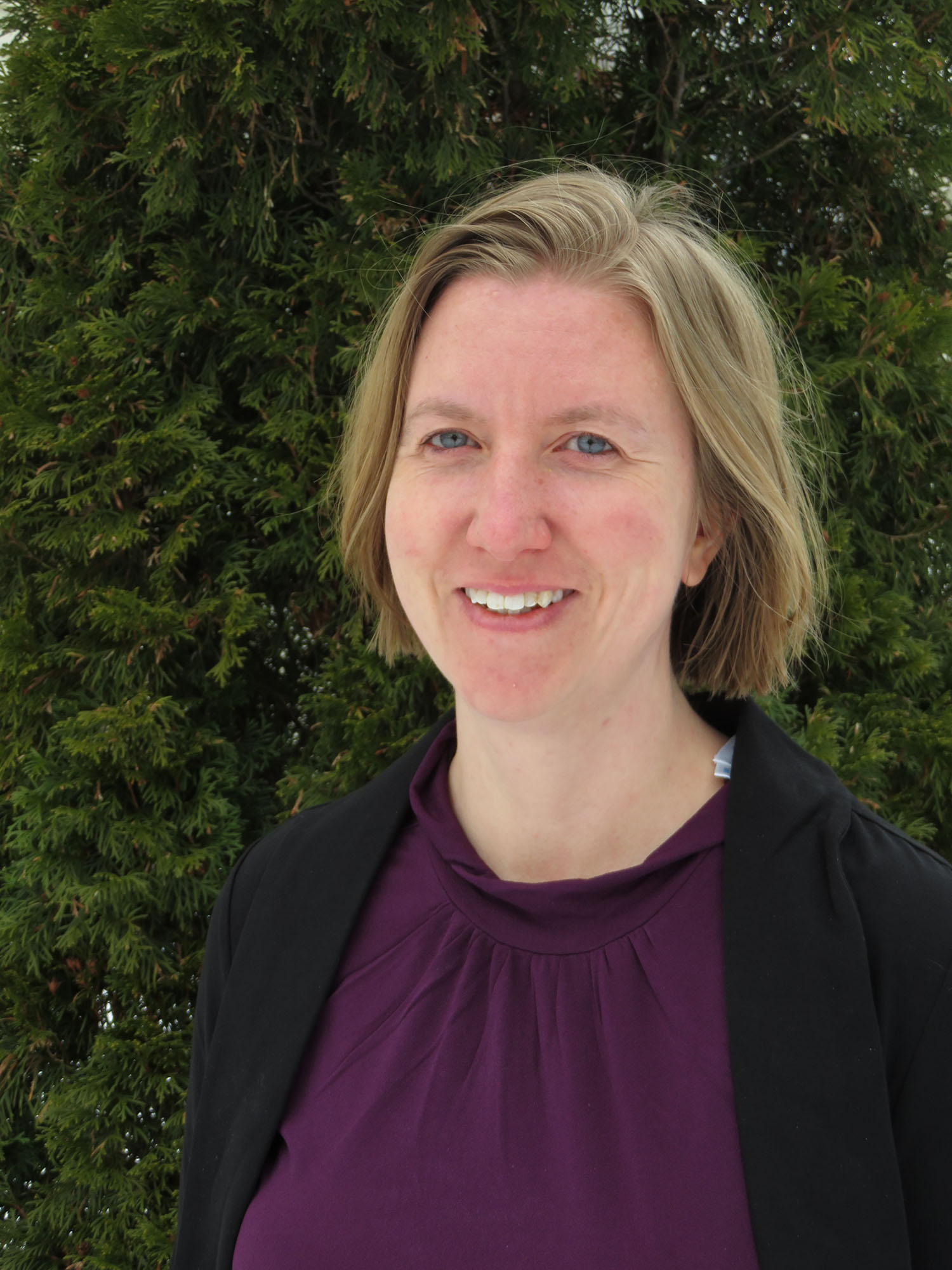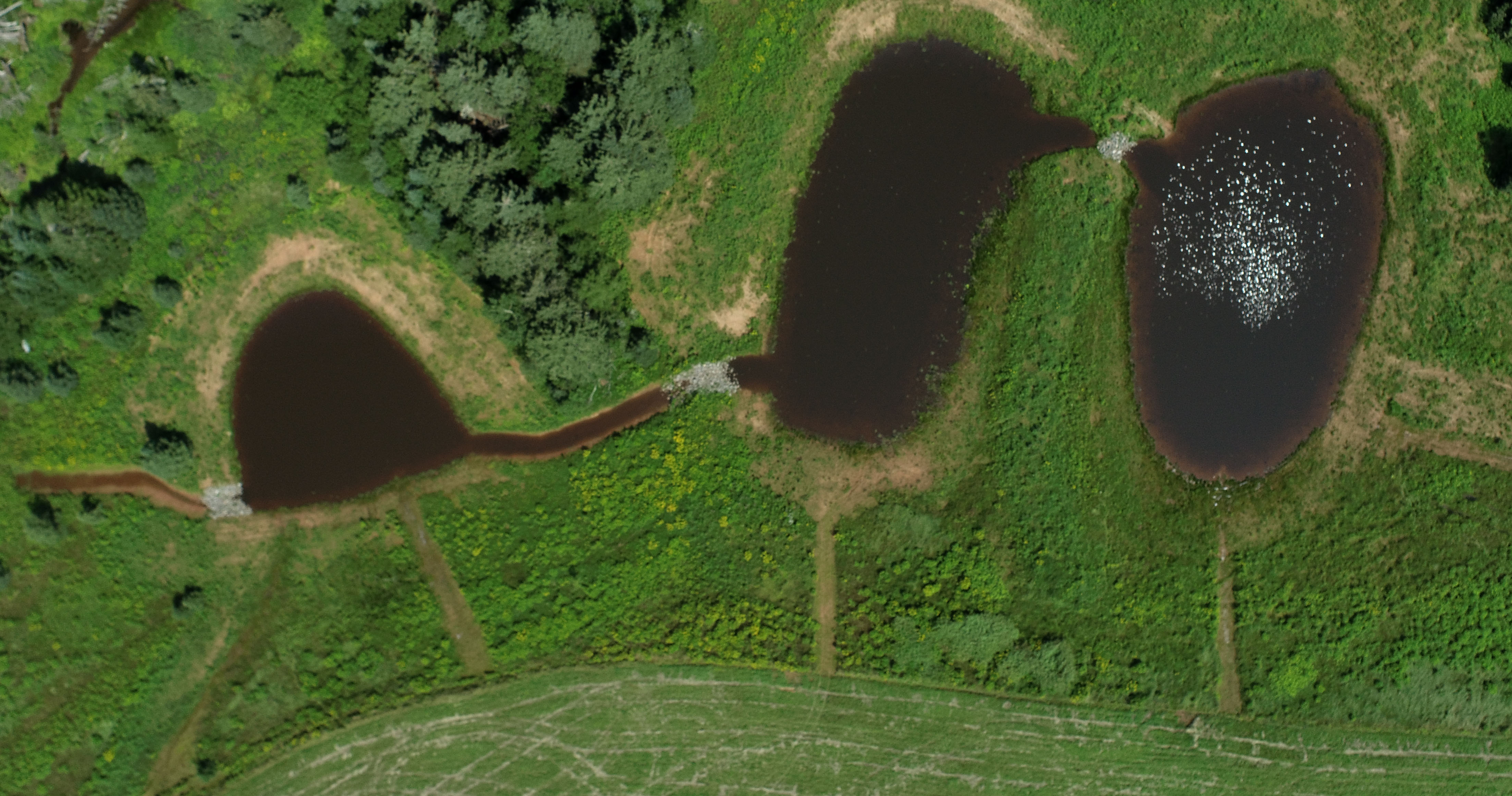Set up an interview
Media Relations
Agriculture and Agri-Food Canada
1-866-345-7972
aafc.mediarelations-relationsmedias.aac@agr.gc.ca
Agriculture and Agri-Food Canada's (AAFC) newest research scientist on Prince Edward Island has her sights set on protecting one of the Island's and world's most precious resources — water. The link between water and agriculture is immense, especially on Prince Edward Island, where freshwater is limited and primarily fed by rainwater and snowmelt events. So how can agriculture play a role in protecting our water?
Dr. Audrey Murray is an AAFC ecological water scientist with experience in wastewater treatment. Through her research at AAFC's Charlottetown Research and Development Centre, she is exploring ways to both preserve this precious resource and care for the ecosystems surrounding agricultural lands. Dr. Murray thinks the way to address this big challenge is by using some innovative natural solutions.
"In the past decade, we have realized that food, water, and energy production are connected, as they are in nature. The guiding philosophy for research has been based on an ecosystem-wide approach to finding environmentally friendly agricultural water-use practices. Working with and for our natural ecosystem will help us identify more ways to sustainably manage and conserve our water."
- Dr. Audrey Murray, Research Scientist, Agriculture and Agri-Food Canada
For farmers, water is an especially precious and important resource, and field and weather conditions affect how much water is available to crops versus how much drains off to surrounding lands. Through the Living Lab – Atlantic project in Prince Edward Island, Dr. Murray is studying ways to prevent water runoff from agricultural lands.
Since Prince Edward Island has well-draining soils, farmers often see water and nutrients running through the soil quickly during rain events. Sometimes, water drains too quickly for farmers to make good use of it for their crops and animals, and the runoff can affect nearby streams and rivers.
"Farmers are acutely aware of these issues. I'm interested in supporting them to implement easy and cost-effective solutions to remove potentially harmful chemicals and nutrients from the water cycle to mitigate the effect to the entire ecosystem on Prince Edward Island," says Dr. Murray.
One of these solutions involves constructing wetlands on farmland. Creating a wetland can help to naturally filter water from farm fields before it enters other watercourses, and provides natural habitats for diverse species, such as plants, insects, amphibians, birds, waterfowl, and other wildlife. They can even play a role in sequestering carbon, which can contribute to reducing greenhouse gas emissions to address climate change.
The Souris and Area Branch of the PEI Wildlife Federation (Souris Wildlife) has already constructed several wetlands on Prince Edward Island, and Dr. Murray is collecting data at these sites to determine their efficiency in filtering water. Thanks to this work, more Prince Edward Island farmers are getting involved with re-developing wetlands and seeing the value they bring to farms and the environment.
Through her research, Dr. Murray is also investigating using vegetated drain ditches on farms to filter water runoff. Farmers commonly construct drainage ditches around farmlands as a way to direct water runoff. Allowing plants (vegetation) to grow and thrive in these ditches provides a natural way to filter water from farm fields. Vegetated drain ditches produce beneficial environmental results similar to wetlands, just on a smaller scale. It is a practice originally developed in the Mississippi River deltas, and through the years, research has shown that allowing vegetation to grow in drain ditches is a much more environmentally friendly and economical way for farmers to slow down the flow of water from farms and naturally filter it.
"We're collaborating with several Prince Edward Island farmers and Souris Wildlife to construct these vegetated drains ditches starting this spring and then will study their effectiveness to improve water quality in cooler Maritime climates."
- Dr. Audrey Murray, Research Scientist, Agriculture and Agri-Food Canada
Dr. Murray hopes that farmers can eventually have several natural options available to filter farm runoff. She explains that "other technologies, such as grass headlands and willow trees, are currently in use on Prince Edward Island to improve water and soil quality and protect streams. Allowing for different options that can be used separately and together will help farmers integrate agricultural land better into our natural ecosystem."
That will help ensure clean water for generations to come.
Key Discoveries
- Agriculture and Agri-Food Canada's newest research scientist on Prince Edward Island, Dr. Audrey Murray, has her sights set on protecting one of the Island's and world's most precious resources — water.
- Through the Living Lab – Atlantic project, Dr. Murray is studying edge of field treatments for agricultural water runoff and supporting farmers to implement easy and cost-effective solutions to remove potentially harmful chemicals and nutrients from the water cycle to mitigate the effect to the entire ecosystem on Prince Edward Island.
- Dr. Murray hopes that two solutions — constructed wetlands and vegetated drain ditches — on farmland will help successfully filter agricultural water runoff before entering Prince Edward Island streams and rivers.
Photo gallery

Dr. Audrey Murray is studying natural water filtration practices.

Dr. Murray is studying how constructed wetlands (shown here) and vegetated drain ditches on farmland can capture and filter water runoff.